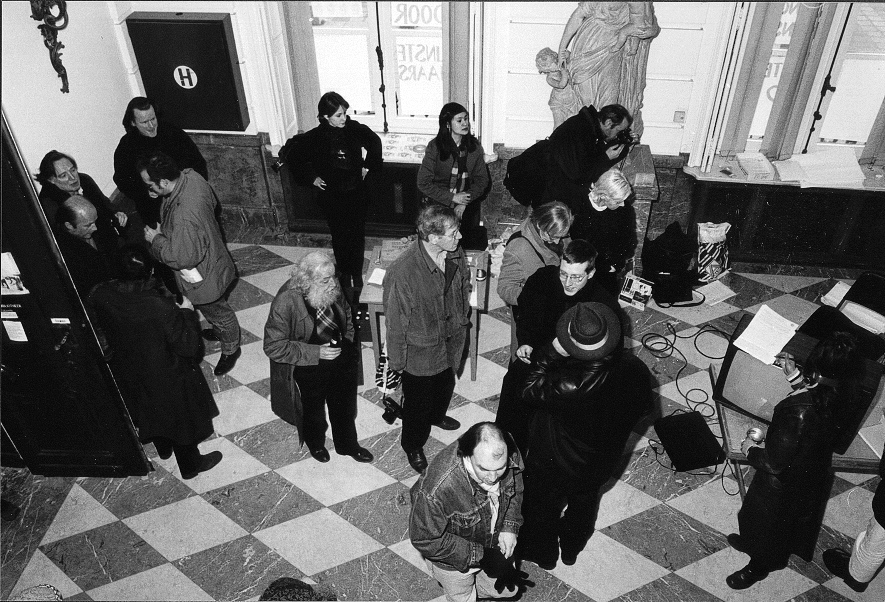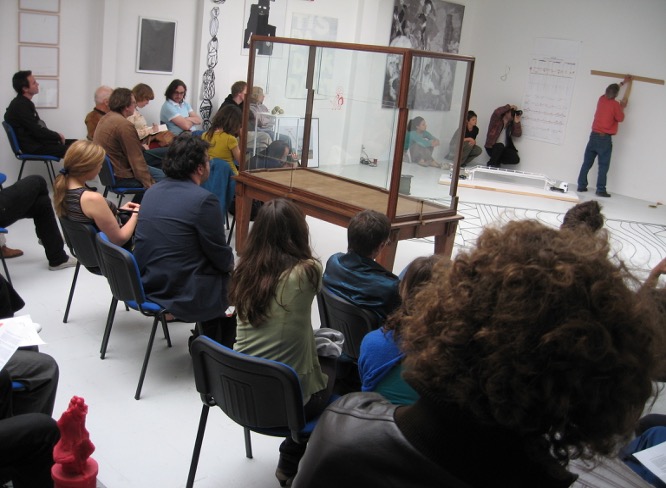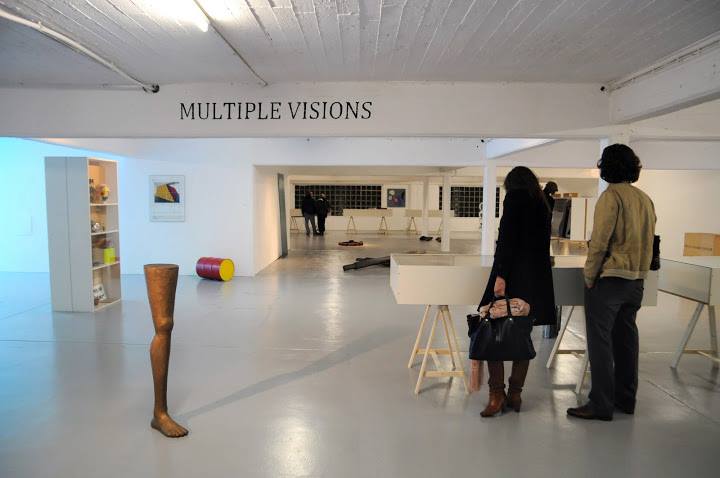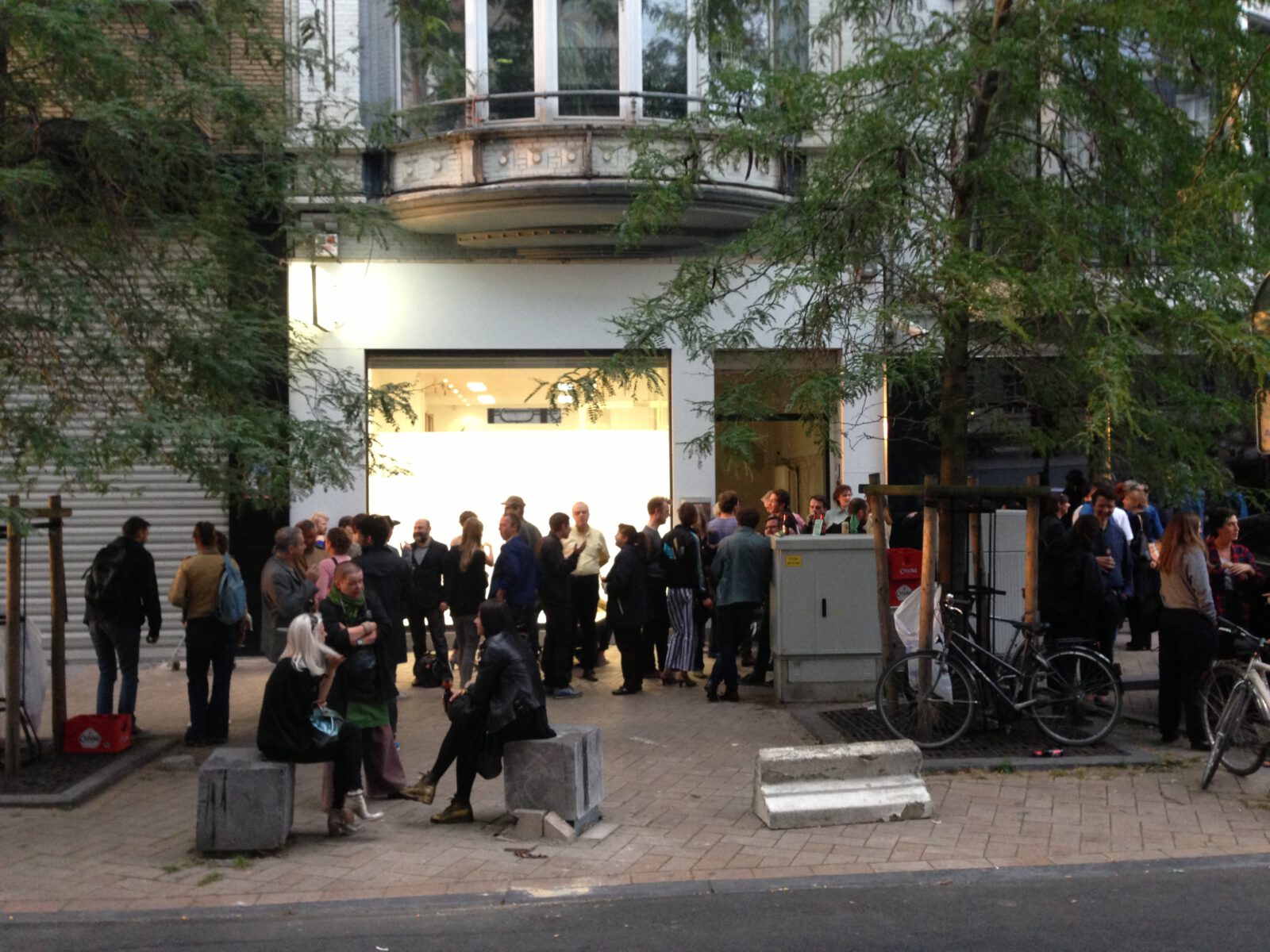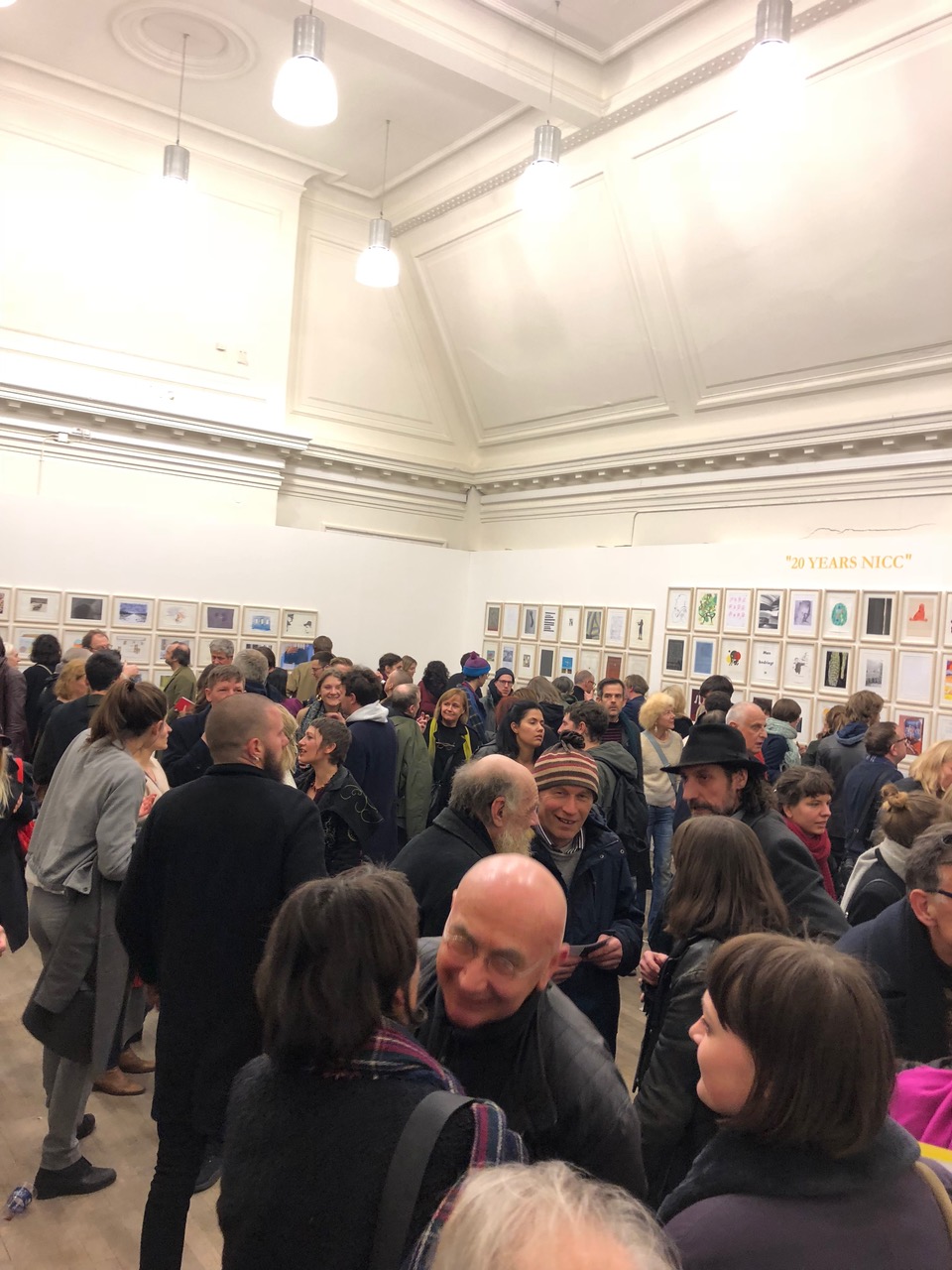About & Contact
Coördinator |Coordinator
Ariadna Estalella Alba
+32 488 061 757
Raad van bestuur | Board of directors
Kasper De Vos, Anna Laganovska, Wouter van Loo, William Ludwig Lutgens, Pierre Mertens, Lucia Mrakovcic, Jelle Spruyt, Wouter Van der Hallen, Shanglie Zhou
Organisatie | Organisation
Mandatenrooster bestuurders | Directors’ term roster
Intern reglement | Internal regulations
Factuurgegevens | Invoice details
NICC vzw
Kleine Markt 7-9
2000 Antwerpen
BE0463. 942. 783
IBAN BE79 7350 4576 9133
EN
Mission & Vision
NICC is an artist-run, non-profit vzw, creating space for interaction between visual artists, institutions and society. NICC operates with specific attention to the socio-economic position of visual artists, and does so within local, regional and international registers.
The core activity of NICC is to promote and critique knowledge about the development of the artistic practice and the framework within which this takes place, and to feed the debate around it. NICC functions as the first contact and representative of visual artists and strives for a strong social framework that enables visual artists to develop their artistic practice professionally and autonomously.
As a counter to monoculture, NICC chooses diversity as the central theme for its 5-year plan (2023-2027). In order to improve the well-being of the visual artist, NICC wants to be a platform where artists can meet and collaborate in their individuality and diversity on an equal footing.
NICC’s history in short
The International Cultural Centre (ICC) in Antwerp was founded in 1970 and was the first public institution for contemporary art in Flanders. During the 70s and early 80s, the organization contributed significantly to the stimulation and dissemination of the Belgian and international avant-garde. The shutting down of the ICC (1998) resulted in the occupation of its building by the group ‘Hit&Run’, which resulted in the establishment of NICC.
From 1998 to 2002 NICC was run by artists such as Luc Tuymans, Guillaume Bijl, and Danny Devos. In addition to an exhibition program, NICC was committed to the advocacy of visual artists.
From 2002 to 2006, NICC focused on social policy. Three new non-profit organisations were founded by people who had previously worked at NICC: Extra City, Objectif Exhibitions, and Air Antwerpen. Indirectly, the BAM and Kunstenloket support centres were also established at the request of NICC.
From 2008 to 2012 NICC was managed by a new group of artists. Despite the limited budget, a rich, public program was developed in Antwerp’s Tulpstraat.
In 2013, NICC moved to Brussels to further develop its supra-local operations and influence. From this location, the NICC Vitrine, a diverse program of artist talks and vitrine presentations was realized with local and international artists such as Dennis Tyfus, Sammy Baloji, Shana Moulton, etc.
Ahead of the 20-year anniversary, NICC returned to Antwerp South in 2017. In 2018, NICC presented two large-scale projects: OPEN STUDIO’S 2018 and 20 YEARS NICC (view the PowerPoint of 20 YEARS NICC here). With OPEN STUDIO’S NICC wanted to focus attention on the need for affordable workspaces and cultural usage of vacant space, from this grew the initiative to bring all Flemish studio organizations together in the UFO platform.
In the summer of 2019, NICC organized a debate in collaboration with De Nor on the sense and nonsense of the artist status for visual artists. At the M HKA, NICC reacted to the policy plan and announced cuts in a visual way with Without Artists No Art (2020). In the summer of 2020, NICC became part of the Artists Coalition.
During the period of 2018-2021, NICC also maintained a constant conversation with advice and critiques to the Cabinet and the administration of the Department of Culture. NICC also spent 1.5 years as a partner in establishing the correct pay framework “right is right” and the federal holistic reform of the socioeconomic status of the Artist, Working in the Arts (WITA).
Anno 2023, NICC continues to question the realization of the above-mentioned trajectories in daily practice and wants to know how we can continue to stimulate dialogue between governments, support structures, and interest groups in order to strengthen the position of the artist in a sustainable way.
NL
Missie en visie
NICC is een artist-run, non-profit vzw die ruimte creëert voor interactie tussen beeldende kunstenaars, instellingen en de samenleving. NICC opereert met specifieke aandacht voor de socio-economische positie van beeldende kunstenaars en doet dit binnen lokale, regionale en internationale registers.
De kernactiviteit van NICC is de kennis over de ontwikkeling van de kunstpraktijk en het kader waarbinnen dit gebeurt te bevorderen, te bekritiseren en het debat hier rond te voeden. NICC fungeert als eerste aanspreekpunt en vertegenwoordiger van beeldende kunstenaars en streeft naar een sterk maatschappelijk kader dat beeldende kunstenaars in staat stelt hun artistieke praktijk professioneel en autonoom te ontwikkelen.
Als tegenwicht tegen de monocultuur kiest NICC diversiteit als centraal thema voor haar 5-jarenplan (2023-2027). Om het welzijn van de beeldende kunstenaar te verbeteren wil NICC een platform zijn waar kunstenaars elkaar in hun eigenheid en diversiteit op voet van gelijkheid kunnen ontmoeten en samenwerken.
De geschiedenis van NICC in het kort
Het Internationaal Cultureel Centrum (ICC) in Antwerpen werd opgericht in 1970 en was de eerste publieke instelling voor hedendaagse kunst in Vlaanderen. Tijdens de jaren ’70 en begin jaren ’80 droeg de organisatie in belangrijke mate bij tot de stimulering en verspreiding van de Belgische en internationale avant-garde. De sluiting van het ICC (1998) leidde tot de bezetting van het gebouw door de groep ‘Hit&Run’, dit resulteerde in de oprichting van NICC.
Van 1998 tot 2002 werd NICC gerund door kunstenaars zoals Luc Tuymans, Guillaume Bijl en Danny Devos. Naast een tentoonstellingsprogramma, engageerde NICC zich voor de belangenbehartiging van beeldende kunstenaars.
Van 2002 tot 2006 richtte NICC zich vooral op sociaal beleid. Drie nieuwe vzw’s werden opgericht door mensen die voorheen bij NICC werkten: Extra City, Objectif Exhibitions en Air Antwerpen. Indirect werden op verzoek van NICC ook de steunpunten BAM en Kunstenloket opgericht.
Van 2008 tot 2012 werd NICC bestuurd door een nieuwe groep kunstenaars. Ondanks het beperkte budget, werd in de Antwerpse Tulpstraat een rijk, publiek programma ontwikkeld.
In 2013 verhuisde NICC naar Brussel om daar de bovenlokale werking en uitstraling verder uit te werken. Vanuit deze locatie, de NICC Vitrine, werd een divers programma van artist talks en vitrinepresentaties gerealiseerd met binnen- en buitenlandse kunstenaars zoals Dennis Tyfus, Sammy Baloji, Shana Moulton, etc.
Naar aanloop van het jubileumjaar 2018 keerde NICC in 2017 terug naar het Antwerpse Zuid. In 2018 presenteerde NICC twee grootschalige projecten: OPEN STUDIO’S 2018 en 20 YEARS NICC (bekijk de powerpoint van 20 YEARS NICC hier). Met OPEN STUDIO’S wilde NICC de aandacht richten op de noodzaak van betaalbare werkruimtes en een culturele invulling van leegstand, hieruit groeide het initiatief om alle Vlaamse atelierorganisaties samen te brengen in het UFO platform.
In de zomer van 2019 organiseerde NICC in samenwerking met De Nor een debat over de zin en onzin van het kunstenaarsstatuut voor beeldende kunstenaars. In het M HKA reageerde NICC op een visuele manier met Zonder Kunstenaars Geen Kunst (2020) op het beleidsplan en de aangekondigde besparingen. In de zomer van 2020 werd NICC deel van de Artiestencoalitie.
Tijdens de periode van 2018-2021 werd ook een constant gesprek met advies en kritiek naar het kabinet en de administratie van het Departement Cultuur onderhouden. Ook zat NICC 1,5 jaar samen aan tafel als partner in het correcte verloningskader ‘juist is juist’ en de federale holistische hervorming van het socio-economisch statuut van de Kunstenaar, Working in the Arts (WITA).
Anno 2023 blijft NICC zich vragen stellen bij de concretisering van bovengenoemde trajecten in de dagdagelijkse praktijk en wil weten hoe we de dialoog tussen overheden, steunpunten en belangenorganisaties kunnen blijven stimuleren om de positie van de kunstenaar samen duurzaam te versterken.
